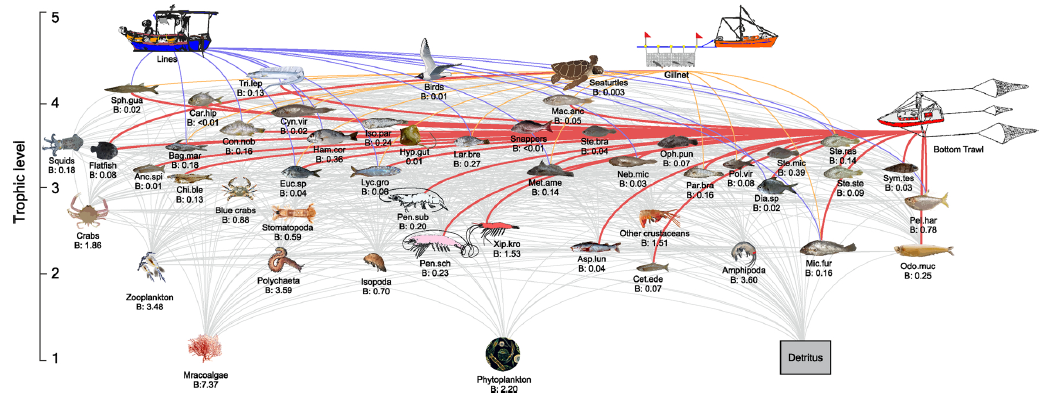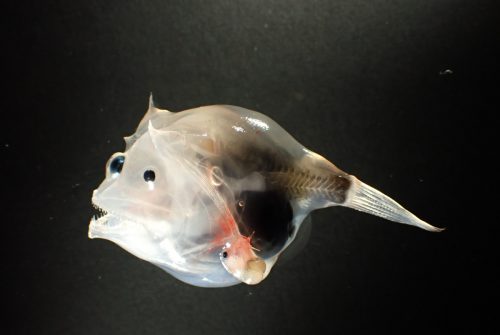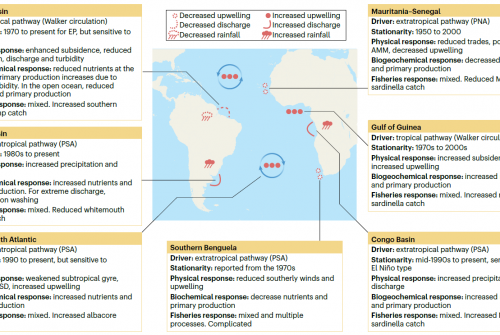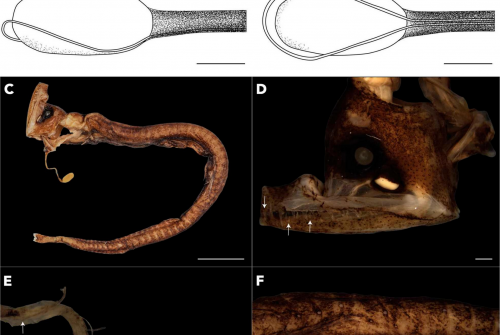
Global shrimp catches are reported primarily in association with large industrial trawling, but they also occur through small-scale fishing, which plays a substantial role in traditional communities. We developed an Ecopath model in north-eastern Brazil, and applied a temporally dynamic model (Ecosim) to evaluate the potential effects of different fishing effort control policies and environmental changes on marine resources and ecosystem between 2015 to 2030 with a case study for small-scale shrimp fishing, novelty for tropical region. These scenarios included different management options related to fishing controls (changing effort and closed season) and environmental changes (primary production changes). Our findings indicate that it is possible to maintain the same level of landings with a controlled reduction of bottom trawlers activities, for example, close to 10 %, without compromising the ecosystem structure. This scenario provided better results than 3–4 months of closing the fishing season, which led to significant losses in catches of high market-value target species (white shrimp, Penaeus schmitti and pink shrimp, Penaeus subtilis). However, intense negative effects on biomass, catch and biodiversity indicators were reported in scenarios with decreasing primary production, from 2 %, reinforcing the need to simulate and project the possible impacts caused by environmental change. However, the control of bottom trawling activity may help to reduce, even at low levels, the highly adverse effects due to primary production reduction. The impacts of climate change in a near future on organisms and ecosystems is an imminent reality, and therefore the search for measures for mitigating and even minimizing these impacts is crucial.
https://doi.org/10.1016/j.fishres.2020.105824
Reference
Lira A.S., Lucena-Frédou F., Le Loc’h F. 2021. How the fishing effort control and environmental changes affect the sustainability of a tropical shrimp small scale fishery. Fisheries Research, 235: 105824







